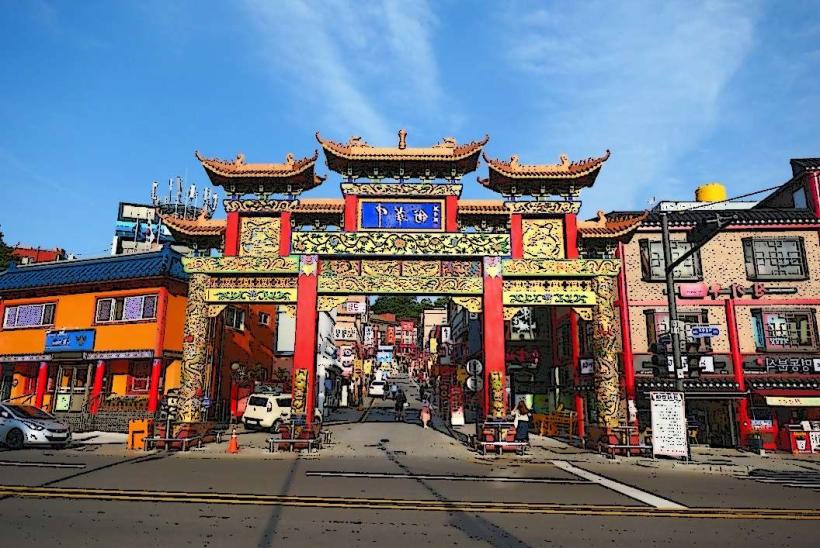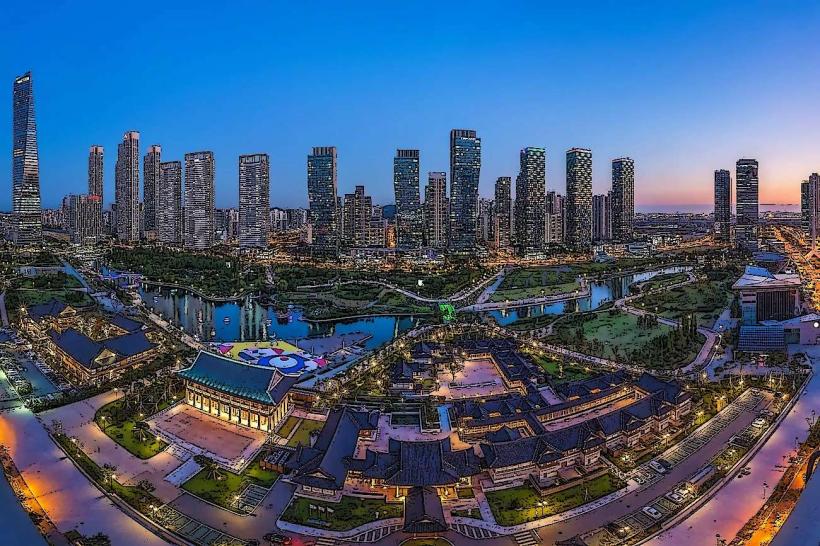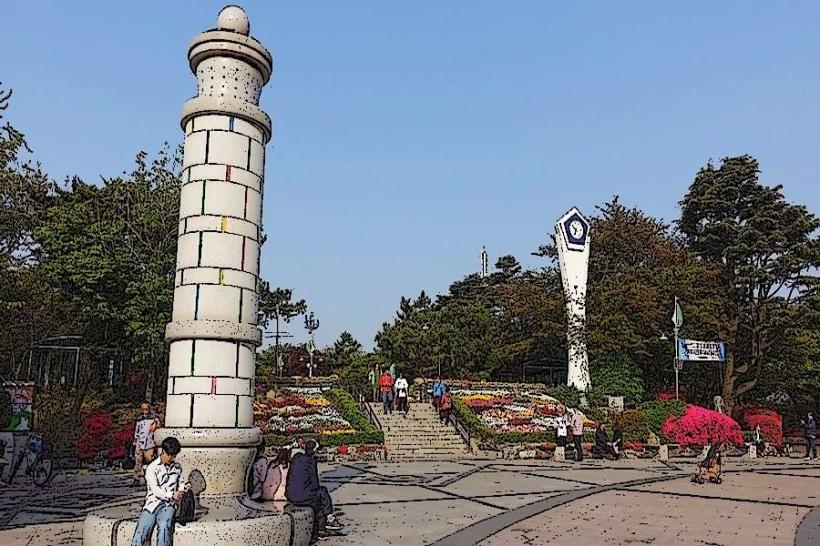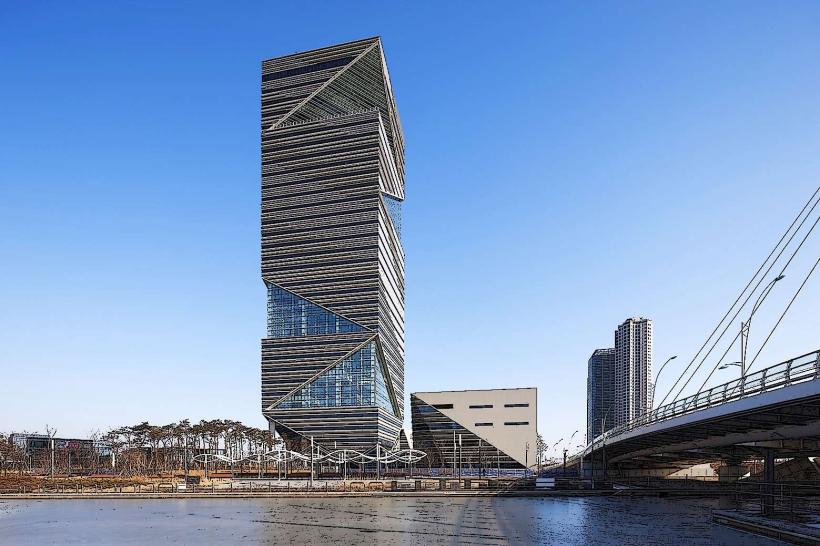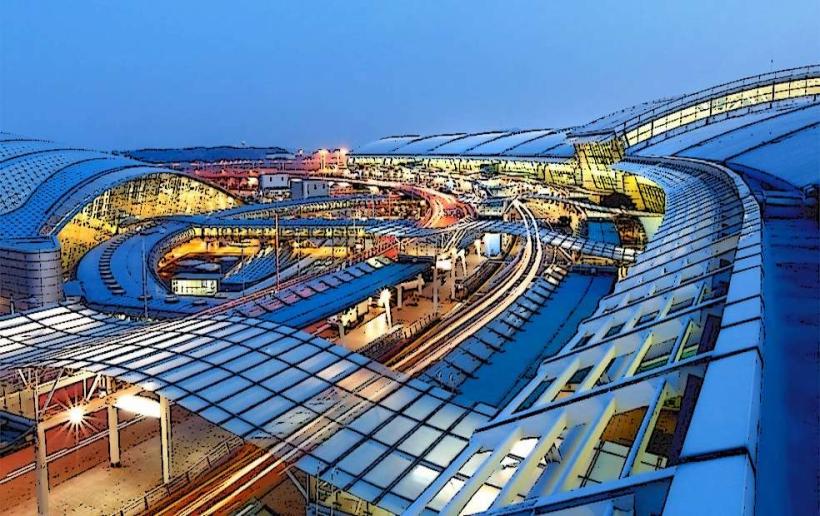Information
Landmark: Incheon PortCity: Incheon
Country: South Korea
Continent: Asia
Incheon Port, Incheon, South Korea, Asia
Incheon Port is a major seaport located in Incheon, South Korea, serving as a primary gateway for international trade and passenger traffic.
It is situated on the Yellow Sea, west of Seoul.
Visual Characteristics
The port infrastructure comprises extensive concrete piers, breakwaters, and a network of access roads and rail lines. It features numerous cargo terminals, container yards, and passenger ferry terminals. The water within the port basin is typically a muted grey-brown due to sediment, especially during tidal shifts. Surrounding the port are industrial buildings, warehouses, and administrative structures, predominantly constructed from concrete and steel, with a functional, utilitarian aesthetic.
Location & Access Logistics
Incheon Port is located approximately 30 kilometers west of Seoul's city center. Access is primarily via the Incheon International Airport Expressway (ICN Airport Expressway) and the Gyeongin Expressway. Major arterial roads within Incheon, such as Hang-gu Road and Dong-gu Road, connect to the port facilities. Extensive parking is available at designated cargo and passenger terminals. Public transport options include the Incheon Subway Line 1, with a transfer to bus routes serving the port area, and numerous city bus lines (e.g., Bus 3, Bus 8, Bus 27) that stop near the main passenger terminals.
Historical & Ecological Origin
The modern development of Incheon Port began in 1883, with its official opening in 1884, primarily for trade. It was strategically important during the Korean War, serving as the landing point for UN forces during the Battle of Incheon in 1950. The port is situated on a coastal plain, with its development involving significant land reclamation and dredging of the estuarine environment.
Key Highlights & Activities
Visitors can observe large-scale cargo operations from designated viewing areas. Passenger ferries depart regularly for islands within Incheon Bay and further afield. The Incheon Port Authority operates a visitor center offering information on port activities. Photography of active cargo handling is permitted from public areas.
Infrastructure & Amenities
Restrooms are available at passenger terminals and visitor centers. Limited shaded areas are present at passenger waiting zones. Cell phone signal (4G/5G) is generally strong throughout the port area. Food vendors and restaurants are concentrated around the main passenger ferry terminals and in nearby commercial districts.
Best Time to Visit
For observing cargo operations, daytime hours (09:00 to 17:00) offer the most activity. For ferry departures, consult specific schedules. Weather is most favorable during spring (April-May) and autumn (September-October), with milder temperatures and lower humidity. Tidal patterns can affect visibility of certain submerged structures.
Facts & Legends
During the Korean War, the Incheon Landing was a critical turning point. The port's initial construction was overseen by the Joseon Dynasty, marking a significant step in Korea's engagement with international maritime trade.
Nearby Landmarks
- Incheon China Town (1.5km East)
- Wolmido Island (2.0km Southwest)
- Incheon Metropolitan City Hall (3.0km East)
- Jayu Park (3.5km East)
- Incheon Landing Operation Memorial Hall (4.0km Southwest)

